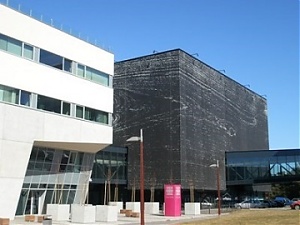Education and Science, Estonia, EU – Baltic States
International Internet Magazine. Baltic States news & analytics
Sunday, 21.12.2025, 02:01
Estonia: TalTech says university fully cooperating with European Commission on audit
 Print version
Print version |
|---|
The audit service of the European Commissions' department of research and innovation contacted TalTech on Dec. 10, requesting the university to appoint a person whom the Commission could contact in relation to a possible audit of three projects financed from the Commission's Horizon 2020 program.
"No audits have been carried out thus far in TalTech as part of the H2020 framework program. The contact person has to be appointed within ten days. If they are not appointed, the university will be represented by its standing authorized representative," TalTech said.
"The general goal of audits is to verify whether or not the use of the European Commission's support complies with the rules of financing and contract conditions. Audits by the provider of the financing are a common part of research project management. The specific purpose of each audit is established ahead of the launching of the audit. Until then, we'll be awaiting further instructions," TalTech said.
The European Commission officially informed TalTech on Thursday that it is about to carry out an audit of the projects financed by the European Union at the university's Ragnar Nurkse Department of Innovation and Governance, the projects to be audited also include OpenGovIntelligence (OGI), which has been extensively reported on by the media, Postimees reports.
Several junior scientists confirmed that OGI, an EU funded project, was used to pay the salaries of people who did not actually participate in the project, Postimees wrote in August this year. Timetables and workloads had also also tampered with.
The prosecutor's office has launched a criminal investigation into the matter on the basis of the section of the Penal Code on benefit fraud.
TalTech then convened a committee of inquiry, which found some shortcomings in project management and said that some timetables lacked signatures but all in all deemed Postimees' claims of alleged fraud to be unfounded.
The university also relayed a report on the department's finances to the European Commission. According to the information available to Postimees, TalTech is willing to admit an error in the management of altogether 17,000 euros.
Despite the committee's findings, the European Commission announced on Thursday that it will audit in detail three of the university's projects financed by the EU.
All of the projects to be audited by the Commission were managed by the Ragnar Nurkse Department of Innovation and Governance and funded from the European Commission's Horizon 2020 program. A project by the name of Tropico, funding for which totaled 245,000 euros will also be included in the audit.
The most notable project among those to be included in the audit is "The Once-Only Principle Project" (TOOP), support for which by the European Commission totaled eight million euros. TalTech's share of the support for the international project amounted to 1.6 mln euros. Whether or not partners in the project will also be audited is currently not known.
TOOP is an international large-scale project led from Estonia. The person responsible for the project, Robert Krimmer, is a professor at the Nurkse Department, who was caught up in the scandal that erupted around the OGI project.
Support for OGI, also led by Krimmer, was close to 279,000 euros.
Also involved in both OGI and TOOP is the Estonian Ministry of Economic Affairs and Communications.
The university now has ten days to appoint the person who will be communicating with the European Commission, which will then investigate reporting in the projects and likely send one of its employees to conduct interviews in Estonia and review the relevant documentation.
The auditor will subsequently compile a preliminary report to which the university will be required to give its feedback within 30 days. The whole process will therefore likely last for several months, possibly even six months or more.
As a result of the audit, the European Union may request for the funding for the projects to be repaid or reduced.
The Research Executive Agency of the European Commission has only carried out three audits in Estonia over the past five years. In two of these cases, a total of 192,000 euros had to be repaid.
TalTech has so far not commented on the topic.
When asked by Postimees on Oct. 14 whether or not the breaches may result in the European Commission effecting recovery, Renno Veinthal, the university's vice-rector for research, said that the possibility cannot be ruled out, and that he would welcome the Commission's audit.








 «The Baltic Course» Is Sold and Stays in Business!
«The Baltic Course» Is Sold and Stays in Business!

